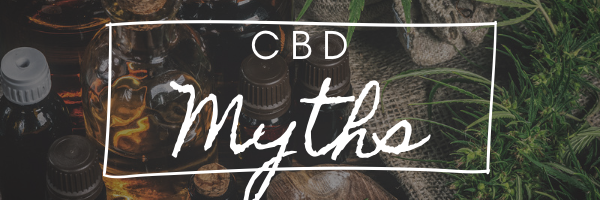
CBD Myths and Misconceptions: Debunking Common Stereotypes
Share
As the popularity of Cannabidiol (CBD) continues to rise, so do the myths and misconceptions surrounding this natural compound. Here, we aim to debunk some common stereotypes and provide a clearer picture of CBD and its potential benefits.
1. Myth: CBD will get you high.
Truth: CBD is a non-psychoactive compound. Unlike THC (Tetrahydrocannabinol), the compound in cannabis that induces a ‘high’, CBD does not produce intoxicating effects. It can, however, promote a sense of relaxation without impairing cognitive function.
2. Myth: CBD is only derived from marijuana.
Truth: CBD can be extracted from both marijuana and hemp plants, which are two varieties of cannabis. However, legal CBD products are primarily derived from industrial hemp, which contains less than 0.3% THC, thus ensuring they won’t produce a high.
3. Myth: All CBD products are the same.
Truth: CBD products can vary greatly in quality, potency, and efficacy. They also come in different types - full-spectrum, broad-spectrum, and CBD isolate - each with their unique properties and benefits. Always choose products from reputable brands that provide a Certificate of Analysis (COA).
4. Myth: More CBD is always better.
Truth: With CBD, ‘more’ is not always ‘better’. CBD has a biphasic effect, which means low and high doses can produce different effects. It’s often recommended to start with a low dose and gradually increase until you find the ‘sweet spot’ that works best for you.
5. Myth: CBD is a magic cure-all.
Truth: While CBD has shown potential for various health applications, it’s not a magic cure-all. It can be a valuable addition to a wellness routine or treatment plan, but it’s not a substitute for professional medical advice and treatment.
6. Myth: CBD has no side effects.
Truth: Although CBD is generally well-tolerated, some people may experience side effects like dry mouth, drowsiness, or changes in appetite and weight. It can also interact with certain medications, emphasizing the need for medical consultation before starting CBD, especially if you’re on other drugs.
In conclusion, it’s essential to separate fact from fiction when considering CBD. As we debunk these myths and misconceptions, we can appreciate CBD for what it truly is - a naturally occurring compound with potential health benefits, not a panacea or a substance to be feared. Proper education and understanding can help ensure that CBD is used safely and effectively.
